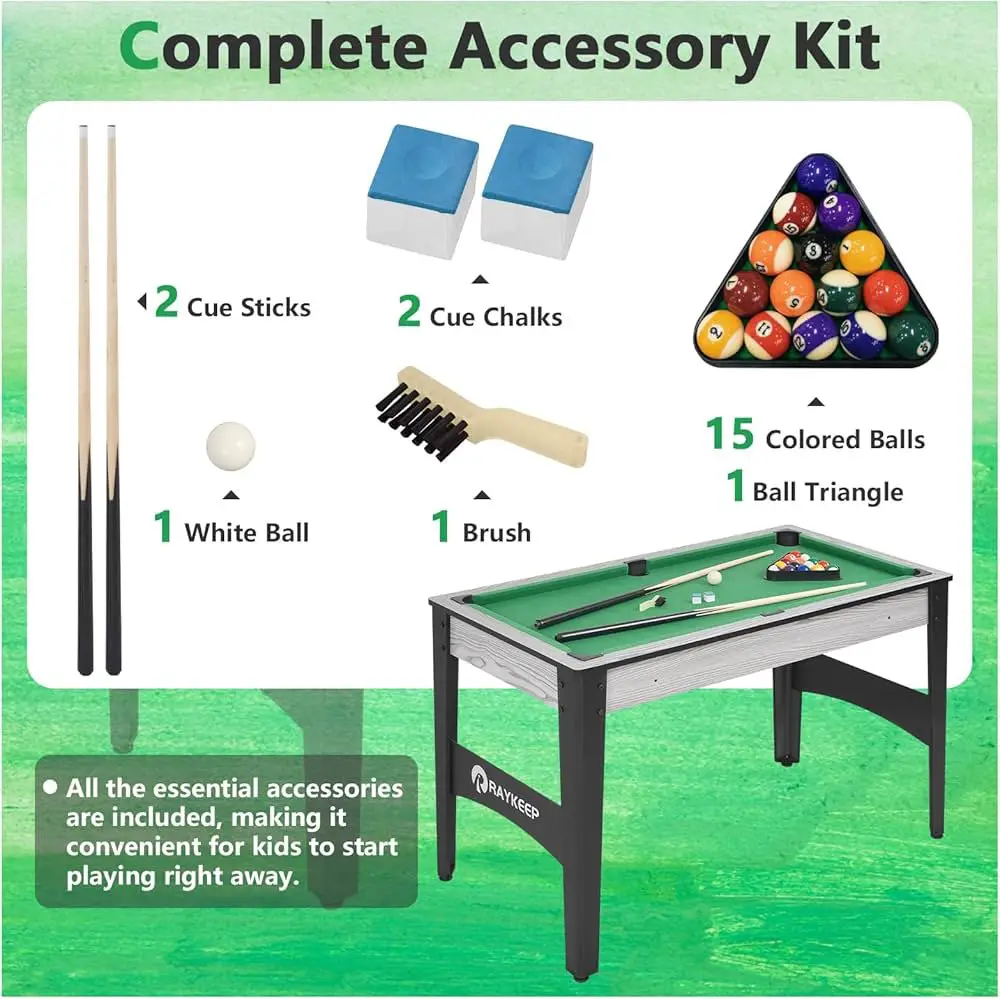Choosing between pool & snooker depends on your preferences & skill level. Pool, often faster-paced & more casual, typically involves fewer balls & simpler rules, making it great for quick games with friends. Snooker, on The other hand, offers a greater challenge with its complex rules, longer tables, & strategic depth, appealing To those who enjoy a more cerebral approach. If you’re looking for social fun, go for pool; if you want To refine your skills & engage in tactical play, snooker is The better choice.
Pool vs Snooker: Which Game Is Right for You?. Discover The differences between pool & snooker! Find out which game suits your style & skill level. Let’s dive into The fun world of cue sports!
Pool vs Snooker: Which Game Is Right for You?
Game Basics
Pool & snooker, both cue sports, offer unique gaming experiences. Each game involves aiming, striking balls, & scoring points, yet their rules & equipment vary significantly. Understanding basic gameplay mechanics assists players in choosing which option aligns better with personal preferences.
Pool typically utilizes a larger table with pockets, while snooker requires a larger table without pockets. In addition, balls used differ in size, weight, & color; pool employs 16 balls, namely an 8-ball, while snooker utilizes 22 balls, including 15 reds, 6 colored balls, & a white cue ball.
Furthermore, pool often encourages fast-paced gameplay, while snooker emphasizes strategy & precision. These distinctions help players decide which game they might enjoy more. Research or personal experience can clarify preferences further. For more insights, check out this resource here.
Equipment Comparison
Equipment directly impacts gameplay in both pool & snooker. A standard pool table measures 7, 8, or 9 feet, featuring six pockets. Players benefit from larger pockets, allowing easier ball sinking, enhancing game flow.
On contrast, a snooker table stretches 12 feet in length with smaller pockets. Players often find greater difficulty sinking balls, requiring higher precision. Consequently, snooker emphasizes skill development due To these challenging requirements.
Moreover, cues used differ in design & length. Pool cues generally measure around 57-58 inches, while snooker cues may extend up To 59 inches or longer. This variation showcases differences between games & impacts how players approach each. Choosing appropriate equipment becomes crucial.
Player Skill Levels
Both games welcome enthusiasts at varying skill levels, creating opportunities for enjoyment regardless of experience. Beginners benefit from pool’s more accessible gameplay, suitable for learning basics swiftly. Casual play often leads To lasting friendship through relaxed competition.
Snooker, meanwhile, appeals more advanced players focused on mastery. Game’s complexities challenge individuals, enabling them To hone skills while competing against others. Those seeking strategic depth find snooker delivers satisfaction not available in other games.
As individuals progress, preferences may shift. Players initially attracted To pool might discover new challenges within snooker, enhancing overall enjoyment of cue sports. Exploring both games grants valuable experience, allowing enthusiasts opportunity for growth.
Social Aspect of Each Game
Exploring social dynamics within pool & snooker opens pathways for understanding enjoyment factors. Pool often regarded as informal, lively, fosters camaraderie among players. Bars or recreational centers frequently host pool tables, attracting diverse groups celebrating competition.
Conversely, snooker offers a more structured environment, often found in designated snooker halls. Players typically engage in focused matches that require respect & patience, developing friendships rooted in mutual appreciation for nuance.
Both settings encourage meaningful interactions, whether during casual encounters in pool halls or intense tournaments in snooker venues. Social connections formed through gaming enhance enjoyment, making either choice worthwhile.
- 🎱 Exciting gameplay mechanics
- 🤝 Opportunities for social interaction
- 🎯 Requires strategic thinking
- 🏆 Challenging skill development
- 🔄 Varied gameplay speeds
Game Strategies & Techniques
Strategic acumen represents vital component in both pool & snooker. Effective players analyze opponents, contemplate shot placement, & plan several moves ahead. Adopting these methods enhances overall skill, allowing for competitive success.
In pool, players often apply different tactics, focusing on ball positioning & shot angles. Mastering fundamentals opens pathways for advanced techniques, which, when developed, lead To impressive results during gameplay. Players familiar with each shot’s nuances frequently outperform others, gaining competitive edge.
Snooker strategy, meanwhile, revolves around more in-depth analysis due To game’s complexity. Players must anticipate opponents’ moves, patiently considering shot options while striking balls. This critical mindset cultivates skills necessary for winning matches, especially within competitive contexts.
Cultural Impact
Both pool & snooker possess unique cultural significance across various regions. In United States, pool represents quintessential bar game ingrained within social experiences. From friendly competitions at local venues, enthusiasts celebrate their love for fast-paced action.
On other hand, snooker enjoys greater reverence in UK & parts of Asia. Players regard snooker as prestigious sport, showcased through televised tournaments attracting millions of viewers. This cultural influence shapes perceptions of each game & influences player preferences.
Understanding cultural contexts fosters deeper appreciation for both sports. Observers often appreciate not only gameplay, but also camaraderie & shared experiences surrounding these beloved pastimes. This emotional connection invigorates interest & commitment among enthusiasts.
Physical & Mental Benefits
Both games provide numerous physical & mental health benefits. Engaging in pool promotes coordination, fine motor skills, & balance. Players develop strength in upper body while executing shots, which becomes increasingly relevant in competitive settings.
Snooker, while requiring similar physical attributes, demands heightened focus & patience. Mental acuity fosters growth, as players strategize, analyze, & execute decisions in real-time. These cognitive skills translate beyond game play, benefitting individuals’ daily lives.
Recreational pursuits in either sport also contribute relaxation, enabling players To unwind from daily stressors. Enjoying rounds during leisure time helps alleviate anxiety & creates enjoyable bonding experiences among friends & family.
Resources for Learning
Beginner players often seek resources for improving skills in pool & snooker. Numerous instructional videos, books, & online tutorials exist designed To enhance game understanding. Players able To find appropriate resources develop proficiency, progressing through skill levels.
Additionally, local clubs & coaching academies allow enthusiasts an opportunity for personalized instruction. Learning from experienced players enhances The development of technique, understanding of game strategy, & encourages networking with other players.
Online forums & discussion groups provide further support, empowering players with shared insights & experiences among fellow enthusiasts. Exploring these platforms fuels passion for sport, enabling it flourish within communities.
Comparison Table: Pool vs Snooker
| Feature | Pool 🎱 | Snooker 🏆 |
|---|---|---|
| Table Size | 7-9 feet | 12 feet |
| Number of Balls | 16 balls | 22 balls |
| Pockets | Yes | No |
| Game Pace | Fast | Strategic |
| Player Style | Casual | Formal |
Personal Experience with Pool & Snooker
Throughout my journey, I’ve experienced both games, enjoying moments of intense competition & casual play. Pool often represented relaxed gatherings with friends, while snooker sessions demanded greater focus & strategic planning. Moments spent at local bars & snooker halls remain vivid, with thrilling matches igniting my passion for cue sports. Each game’s unique aspects shaped my appreciation, offering unforgettable memories & personal growth.
For those keen on further exploring various sports including these two, visit this page here for immense information.
Discover The differences between pool & snooker! Find out which game suits your style & skill level. Let’s dive into The fun world of cue sports!

What are The main differences between pool & snooker?
The main differences between pool & snooker lie in The size of The tables, The number of balls used, & The rules of play. Pool tables are typically smaller & have six pockets, while snooker tables are larger with six pockets but in a different configuration. Pool uses 16 balls, while snooker uses 22 balls, including 15 red balls, 6 colored balls, & a white cue ball.
Which game is easier for beginners To learn?
Pool is generally considered easier for beginners due To its simpler rules & smaller table size. Players can often pick up The basics more quickly, whereas snooker has more complex rules & requires more precision & strategic thinking.
Is there a difference in The skills required for pool & snooker?
Yes, while both games require hand-eye coordination, snooker demands a higher level of precision & strategic planning due To its larger table & The need To control The cue ball for position play. Pool emphasizes shot-making & can be more forgiving regarding misses.
Which game requires a larger playing area?
Snooker requires a larger playing area due To The size of The table, which is 12 feet by 6 feet, compared To a standard pool table that typically ranges from 7 To 9 feet. This means that snooker is less suitable for smaller rooms.
Are there professional circuits for both games?
Yes, there are professional circuits for both pool & snooker. Snooker has a well-established professional scene with major tournaments like The World Snooker Championship, while pool has its own prominent events & organizations, including The World Pool-Billiard Association.
Can you play pool & snooker on The same table?
No, you cannot effectively play both games on The same table because The tables are designed differently. Pool tables are smaller with wider pockets, while snooker tables are larger with tighter pockets & require specific dimensions for accurate play.
What types of cue sticks are used in pool & snooker?
Pool cues are typically lighter & shorter with a thicker tip for better ball control & power. Snooker cues are longer, heavier, & have a smaller tip diameter To allow for more precision in shots, especially due To The delicate nature of snooker play.
How do scoring systems differ between pool & snooker?
In pool, players typically score by pocketing balls & winning games, often in a race To a certain number of games. Snooker has a more complex scoring system where points are awarded based on The balls pocketed & there is a higher focus on achieving breaks & playing strategically.
Is one game more social than The other?
Pool is often seen as a more social game, commonly played in bars & recreational venues where players can engage in casual matches. Snooker tends To be more competitive & is often played in clubs where players focus on skill development & tournament play.
Which game is more popular worldwide?
Pool has a broader popularity in casual settings & is played in many countries, particularly in North America. Snooker, while extremely popular in The UK & parts of Asia, has a more niche following compared To pool’s widespread appeal.
Conclusion
Choosing between pool & snooker really depends on what you enjoy. If you prefer fast-paced games with lots of action, pool might be for you. It’s easy To learn & great for socializing. On The other hand, if you love strategy & precision, snooker could be The better pick. It requires patience & skill, making every shot exciting. No matter which game you choose, both are tons of fun & can be played with friends. So, grab some cues & start playing—whichever game you pick, you’ll have a great time! Enjoy The experience & have fun!











